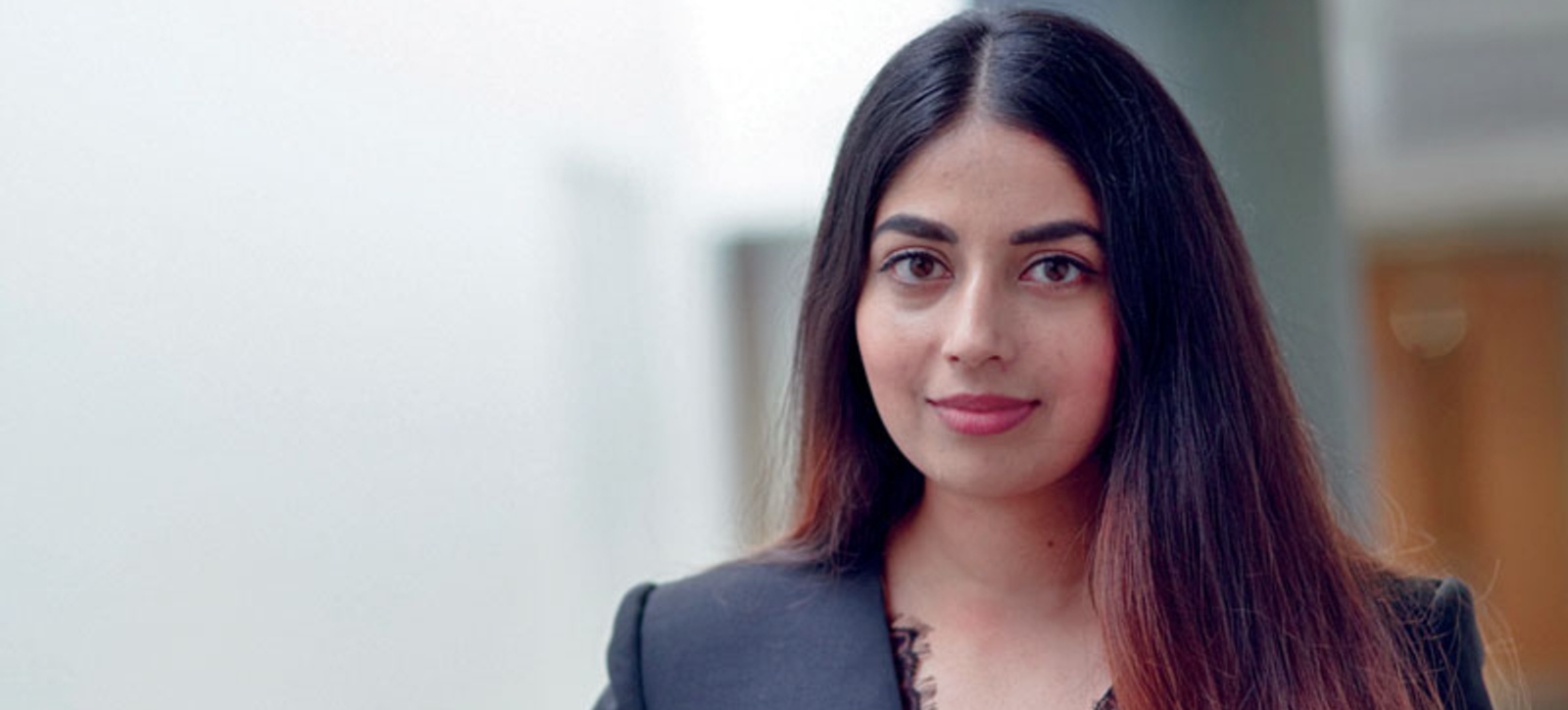
- Shabnam used an MBA to switch from healthcare to consultancy
- Full-time programme allowed her to understand her strengths
- Gaining an MBA has helped her progress with Infosys Consulting
- The 31-year-old uses many of the tools from the MBA as a consultant
Management consultant Shabnam Aslam believes networking is the key to making the most of an MBA.
In 2016 Shabnam, who grew as one of six children in West Midlands, was five years into a career in the medical technology sector with Computer Science Corporation. But as a project manager she felt her career was stalling and had become frustrated at the slow-moving pace of innovation in health technology.
It was time for a change and though she was saving to buy a property Shabnam (pictured) decided to use the money to invest in her future instead with a Full-time MBA. She also managed to persuade her company to give her voluntary redundancy to help with the cost.
“The MBA allowed me to upskill and evaluate my career, helping me to figure out my strengths and my passion,” says the 31-year-old, who did a Business Apprenticeship after leaving George Salters Academy, rather than A-levels before studying for a BA (Hons) Human Resource Management. “I am really good with people and have strong emotional intelligence. I’m very compassionate, and I’ve always been told I am a good listener, but I didn’t know what I could really do with these strengths. The MBA has helped me realise that these strengths can be used to make a difference.
“I love socialising and networking is an extension of that. I went to all the career talks and events at WBS, and it helped me understand that consultancy is all about listening to people, understanding their problem and working with them to find a solution. I thought that mirrored my strengths and inspired me to pursue a career in consultancy.
“I secured my first job in consultancy at Capco before I had finished my dissertation by networking on LinkedIn after an MBA trek to their headquarters.
"Their offices were amazing and they were very big on digital technology and that’s where I wanted to be. I had to go through five rounds of interviews to get the job, so I was very pleased, though for the first six months it was a real struggle to find my feet, because consultancy is a completely different world compared to industry.
“I still network now, as an alumni I go to most of the WBS careers events. They always have interesting speakers and you get to meet new people and make new contacts – they are really helpful.”
Register for an online Q&A with Full-time MBA alumna Shabnam Aslam
Shabnam cited the Leadership Plus module as hugely helpful in understanding her strengths and how to handle difficult conversations with colleagues and stakeholders, which has helped her in her everyday life as a consultant.
“There were a lot of people resistant to change and waiting for retirement in healthcare, I felt my skills were dying out, so the MBA was a breath of fresh air,” says Shabnam, who has had to put a 16-week consultancy project with pharma multinational Novartis in Switzerland on hold because of the global pandemic.
“The case studies during the MBA were really interesting, giving me a broader understanding of business disciplines and different perspectives within the real world of business, while Leadership Plus was a fantastic module.
“When you are working hard in your career you never have the time to really take time out to reflect on yourself and where you want to head with your career. Leadership Plus really allowed me to learn so much about myself, understand different leadership styles and how to work as part of a group with different cultures.”
After spending 18 months at Capco specialising in financial services, Shabnam moved to multinational Infosys Consulting and believes her MBA has helped accelerate her development.
Shabnam says: “You can get a consultancy job without an MBA, but the bosses will place the appropriate people in the right roles for each project. And when they select somebody for the strategy position, which is a high-end role, that is where the MBA helps differentiate and they will always pick the MBA for the strategy position.
“MBAs have an understanding of strategy, market research and what competitive advantage is. Strategy and technology is now my specialism and that is thanks to the MBA; I get to use my MBA learning; SWOT Analysis, Porter’s Five forces, PESTLE and the 5Ps and other tools quite a bit. My passions are strategy and technology, so this position is perfect for me.”
Register for an online Q&A with Full-time MBA alumna Shabnam Aslam




 X
X Facebook
Facebook LinkedIn
LinkedIn YouTube
YouTube Instagram
Instagram Tiktok
Tiktok